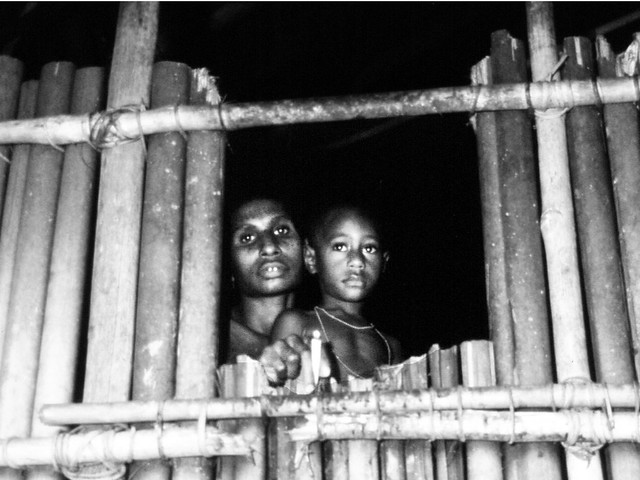VANCOUVER, British Columbia—As fashion week moves into the spotlight in New York, the most flamboyant designs may be on the ice in Canada.
Next week, American figure skater and provocateur Johnny Weir will unveil a sparkly one-piece of his own design in Olympic competition. It's not often that a skating wardrobe change makes headlines, but that's what happened after Mr. Weir received threats for wearing white fox fur on his costume at last month's U.S. championships. (He has since switched costumes.)
Glitter on Ice
A look at some of Johnny Weir's skating outfits.
View Slideshow
![[SB10001424052748703382904575059683861298238]](http://s.wsj.net/public/resources/images/OB-FM757_0212WE_D_20100211112916.jpg)
It's all part of the package with Mr. Weir, who has made a name for himself as much for his off-ice drama—like wearing a Soviet team jacket to warm up at the 2006 Olympics—as for his skating. Mr. Weir, a contender to win a medal at his second Games, has shaken up the business of men's skating by blending it with high fashion and over-the-top personality. While other American male skaters have most commonly made post-Olympics names for themselves as coaches, TV commentators or professional stars in traveling skating tours, Mr. Weir has taken the unusual step of foraying into fashion during his competitive career.
He has walked (and skated) the runway at New York Fashion Week and this year started his own Be Unique label with a line of $95 black jackets. After appearing in a documentary called "Pop Star on Ice," he is now the star of the Sundance Channel's reality show "Be Good Johnny Weir," which shows him practicing for many hours as well as shopping with his best friend Paris. In a promo for the show, Mr. Weir participates in a photo shoot in which he, wearing nothing but women's high heels, gloves and gem-studded leggings, emerges from a giant gold Fabergé egg.

Figure skater Johnny Weir chats with WSJ's Geoffrey Fowler about the weirdest thing a fan has ever thrown him on the ice and what's on his iPod.
Watch Weir Skate
Watch Johnny Weir skate to Lady Gaga's "Poker Face" at New York Fashion Week in Feb. 2009, along with an interview with Lifeskate.com's editor Susan Chun on his fashion ambitions.
Mr. Weir, who has worked on costumes with the same seamstress since he was 13, calls one of his outfits "a Care Bear on acid. " He attributes his fifth-place performance at the 2006 Games to not feeling his "aura." Despite the negative attention for his fox fur choice, he doesn't apologize for loving fur. ("Pop Star on Ice" showed him moving numerous boxes of furs to a new apartment.) He even skates differently, spinning and jumping clockwise, unlike most of his counter-clockwise competitors. He spends lots of time with his fans, and enjoys particularly large followings in Japan, South Korea and Russia.
"Johnny Weir is the kind of creative talent that is pretty addictive for our viewers," says Sarah Barnett, the general manager of the Sundance Channel, which is owned by a unit of Cablevision Systems. "He is not afraid to show everything."
More
The Vancouver Medals Forecast
The Olympics Soap Opera Digest
All Coverage at the WSJ Olympics Page
![[weir1]](http://si.wsj.net/public/resources/images/WK-AS819_weir1_D_20100210151848.jpg) Getty Images
Getty Images
Johnny Weir at the U.S. Figure Skating Championships in January, above, and in a warm-up jacket he designed, below.
![[weir3]](http://si.wsj.net/public/resources/images/WK-AS821_weir3_DV_20100210152250.jpg) Sundance Channel
Sundance Channel
Journal Community
Vote: Which country will win the most medals?
Vote: Should NBC tape-delay Olympic events for a primetime audience?
Vote: With 835 hours of programming, how much of the Olympics will you watch?
Headlines and fan loyalty haven't yet won Mr. Weir top-shelf sponsorships. His rival and fellow U.S. team member Evan Lysacek, the 2009 world champion who focuses on the sport's athletic jumps and spins, is backed by Coca-Cola and AT&T. Mr. Weir—whose performance since the 2006 games has sometimes disappointed—only gets money from his ice rink and skate manufacturer, as well as exhibitions and lectures. (He is in talks with "a very big furrier" but is nervous about moving forward "for obvious reasons," says his agent, Tara Modlin.) Skating has never lacked for male peacocks. But Mr. Weir's particularly public persona creates discomfiture at a moment when figure skating has been struggling to reassert itself as a legitimate sport in the aftermath of a 2002 judging scandal.
"Figure skating, with its roots in amateur sports, has created champions with an image of innocence and wholesomeness. Gender role ambiguity has been tolerated, but not promoted," says Susan Chun, the editor of the skating blog Lifeskate.com. While Mr. Weir has in the past said he didn't get sufficient support from U.S. Figure Skating officials, Ms. Modlin is quick to say that the organization's new president, Patricia St. Peter, is a fan of Mr. Weir's. Officials at U.S. Figure Skating didn't respond to a request for comment.
Nearing the end of his competitive skating career, Mr. Weir hopes there's a different sort of brand in his future. One of his favorite performers is Lady Gaga, the pop singer who has pushed cultural boundaries with out-of-this-world fashion but managed to sell her music to the mainstream. Mr. Weir, who performs to Lady Gaga's hit "Poker Face" at exhibitions, recently attended her concert at Radio City Music Hall and sat next to the singer's mother, who is a skating fan.
"When Gaga started, there were people who worried about her as well. But look at some of the brands associated with her now," like Polaroid, says Mark Zablow, the director of marketing for Platinum Rye Entertainment, a talent firm that is managing the careers of some 30 Olympic athletes. "Yes, your Cokes and Visa may stay away from Johnny. But if he wins, he could open the door for figure skating to a whole new category of brands."
Raised in Quarryville, Pa.—Amish country—Mr. Weir started figure skating relatively late in life, when he was 12, after watching Oksana Baiul win gold at the 1994 Olympics. His mother works for the U.S. Census Bureau, and his father is on disability. Mr. Weir won the world junior championship in 2001 and the adult U.S. championships three times in a row between 2004 and 2006. But since the 2006 Olympics, his performance at competitions has been uneven. In 2007 he switched from his long-time coach Priscilla Hill to Galina Zmievskaya, who had previously coached his idol, Ms. Baiul.
![[weir2]](http://si.wsj.net/public/resources/images/WK-AS820A_weir2_DV_20100210152046.jpg) Sundance Channel
Sundance Channel
Johnny Weir with his costume creator Stephanie Handler and coach Galina Zmievskaya.
Mr. Weir's interest in fashion predates his interest in skating. His mother, Patti Weir, says she remembers him demanding to pick his own clothes—a brightly colored high turtleneck—and doing his own hair at school for the annual photo day in fourth grade. "I would trust him to tell me what to buy," she says.
His future likely lies in fashion, says Ms. Modlin and other people who work with him. He has turned the guest room of his apartment into a walk-in-closet with two floor-to-ceiling "trees" with hooks. One is for his furs, and the other is for his Balenciaga. He has dozens of Balenciaga bags, almost all of which have been given to him by fans.
In his online journal last summer, Mr. Weir wrote about how he'd rather daydream about fashion than listen to lectures from U.S. Figure Skating, which runs a program for top athletes in Colorado Springs called "Champs Camp." "I have a hard time sitting through lectures while I'm doodling costumes in my binder or considering the autumn colors for the Balenciaga collection," he wrote. Mr. Weir says he has befriended designers like Richie Rich (a former figure skater), and wants to attend New York's Fashion Institute of Technology.
Stephanie Handler, a seamstress who has worked with Mr. Weir on his costumes since he was "a 13-year-old piece of spaghetti," says that he has an aesthetic that's all his own. They create his costumes together, starting with Mr. Weir's drawings and then translating them into fabrics. Last fall, she recalls gathering at her studio to choose a shade of pink used for lacing on his costume for the Olympic short program. "He was particular about it not being sissy pink or bubblegum pink. It had to be fuchsia electric—not quite day-glow pink," she says.
She calls Mr. Weir a fashion pioneer in skating. "Everyone is blurring the lines a lot more because of Johnny's influence. Remember back when skating was all pants and shirts? Now there are a lot more little onesies out there among the guys. There is a whole lot more expression going on than in Dick Button's time," she says, adding that already some female skaters have asked to buy Mr. Weir's costumes to turn them into dresses.
While he attracts detractors from the traditional figure skating world, Mr. Weir was also criticized by Mark Lund, the gay former editor of International Figure Skating magazine, for not more directly addressing whether he is gay. In interviews, Mr. Weir celebrates the fact that he is effeminate and likes "sparkly things" but deflects questions about his sexuality, saying he doesn't want to be put in a box.
Mr. Weir uses his TV show to respond to these pressures. In one episode he says that he takes "the best of masculinity and femininity and put it together in some kind of Johnny Weir mixture."
Write to Geoffrey A. Fowler at geoffrey.fowler@wsj.com
Online.wsj.com


















![[SB10001424052748703382904575059683861298238]](http://s.wsj.net/public/resources/images/OB-FM757_0212WE_D_20100211112916.jpg)

![[weir1]](http://si.wsj.net/public/resources/images/WK-AS819_weir1_D_20100210151848.jpg) Getty Images
Getty Images![[weir3]](http://si.wsj.net/public/resources/images/WK-AS821_weir3_DV_20100210152250.jpg) Sundance Channel
Sundance Channel![[weir2]](http://si.wsj.net/public/resources/images/WK-AS820A_weir2_DV_20100210152046.jpg) Sundance Channel
Sundance Channel

























 Comments
Comments